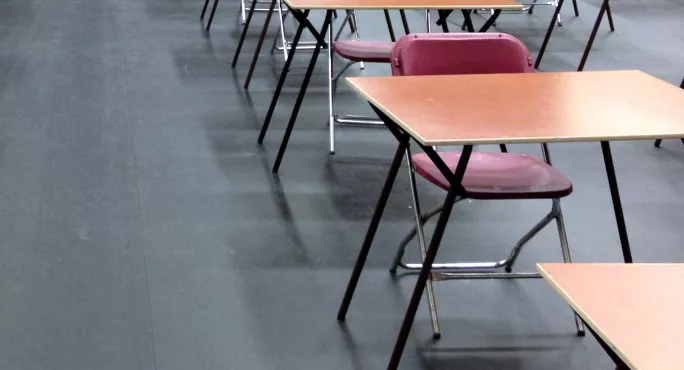Ofqual will provide a "calculated grade" for each A-level and GCSE resit student this summer, the Department for Education has confirmed. This follows the news that this year's exams would be cancelled due to the coronavirus outbreak.
Exam boards will ask teachers to submit their judgement about the grade they believe the student would have received if the exams had gone ahead, according to the DfE.
When producing this judgement, teachers will "take into account a range of evidence and data including performance on mock exams and non-exam assessment".
The key worker list: what should colleges do?
Apprenticeship providers: we need urgent support
Coronavirus: Exams are cancelled - so what next?
The exams board will then combine this information with other "relevant data including prior attainment" and calculate the grade.
The impact of coronavirus on exams
Students will then be given the opportunity to resit the exams next year if they so wish. The aim is to provide these calculated grades to students before the end of July.
The statement from the DfE said: "There is a very wide range of different vocational and technical qualifications as well as other academic qualifications for which students were expecting to sit exams this summer. These are offered by a large number of awarding organisations, and have differing assessment approaches – in many cases students will already have completed modules or non-exam assessment which could provide evidence to award a grade.
"We are encouraging these organisations to show the maximum possible flexibility and pragmatism to ensure students are not disadvantaged. Ofqual is working urgently with the sector to explore options and we will work with them to provide more details shortly."
Education secretary Gavin Williamson said: "Cancelling exams is something no education secretary would ever want to do. However, these are extraordinary times and this measure is a vital but unprecedented step in the country’s efforts to stop the spread of coronavirus.
"My priority now is to ensure no young person faces a barrier when it comes to moving on to the next stage of their lives – whether that’s further or higher education, an apprenticeship or a job.
"I have asked exam boards to work closely with the teachers who know their pupils best to ensure their hard work and dedication is rewarded and fairly recognised."
Ofqual have confirmed they will provide further detail in the coming days.
Tom Bewick, chief executive of FAB, said there is still a significant amount of work to be done to finalise how more than 1 million learners studying vocational technical qualifications (VTQs) and completing apprenticeships are best assessed.
He said: “We would encourage ministers and Ofqual to be equally as responsive in agreeing how VTQ students will be assessed through the difficulties caused by coronavirus. That should include a comprehensive plan for how apprentices will be assessed for occupational competence, as well as those doing vocational courses.
“We also need to urgently agree with the government the financial support that End-Point Assessment Organisations (EPAOs) will need during a period where apprenticeship starts are likely to come to a halt.”
Nicola Dandridge, chief executive of the Office for Students, said that that OfS is asking all colleges to pause giving unconditional offers.
She said: "Some universities and colleges have in recent days reportedly been making unconditional offers that may not be in students’ best interests. We are today asking that all universities and colleges pause unconditional or other offers that could disadvantage students given today’s reassurances there is no reason to depart from the normal admissions processes. All universities and colleges should work to put the student’s interest first."





